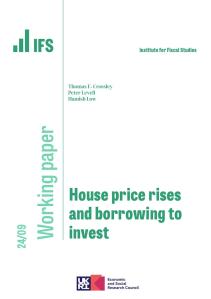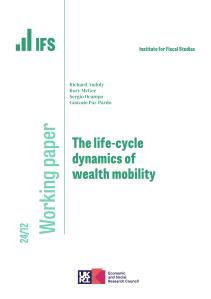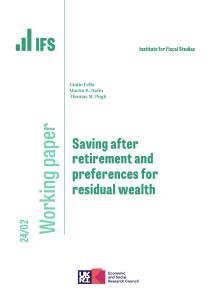This article was first printed by The Times newspaper on 17 August 2015 and has been reproduced here with permission.
August is usually a quiet month for tax wonks. The chancellor is on his holidays, the next budget is a long way away, Treasury staff are taking a well-earned break.
This August is different. The Treasury is quietly consulting on what could be one of the biggest single changes to the tax system in decades — one which really could bring tens of billions into the nation’s coffers, at least in the short run.
For, alongside the July budget, a short consultation paper was published under the innocuous-sounding title Strengthening the Incentive to Save: a consultation on pensions tax relief. In a gentle way it throws wide open the whole question of how we tax pensions.
Sounds arcane? Don’t switch off yet. Not when this could increase tax revenues by more than £30 billion a year — the single biggest tax-raising measure in living memory.
What is this extraordinary change? Very simply, it would involve changing the point at which you pay income tax when you save in a pension.
At the moment tax relief comes up front — you put money in a pension out of pre-tax income. About £70 billion a year is paid into funded private pensions in this way. You then pay income tax on the pension when you take it out at the other end. A reversal of that is under consideration. The government would take the tax up front when you save in the pension but would pledge not to charge tax later on when you withdraw the money.
The immediate effect on the government’s finances would be huge. All that money going into pensions now would be subject to tax now. There would of course be a cost later on — no income tax receipts when the money is taken in 20, 30, 40 years’ time. The (silly) way that government budgeting works, though, would mean that only the additional up-front revenues would appear in the headline accounts. Much of the budget deficit would apparently be dealt with at a stroke.
To be fair the consultation paper studiously ignores any such budgetary arithmetic. But the proposal must be tempting.
So why might we consider changing a system that broadly makes economic sense in that it ensures that pension savings are taxed once, but only once? Indeed, why should we savers mind whether we get the tax relief up front or later?
One misguided criticism of the current regime is that it is “unfair” because most of the tax relief goes to high earners. Well of course it does. They pay most of the tax. And in any case this is a deferral of tax, not an avoidance of it. We do need to be much more careful about how we think about these things.
Another criticism is that many who get tax relief at 40 per cent when they make contributions pay only 20 per cent tax when they take their pension. That’s an interesting one. The income tax system is based on annual incomes. So I pay a whole lot more tax if I have £50,000 this year and nothing next year than if I earn £25,000 in each year. Is that fair? If you think not, then the current pension regime which allows you to defer taking income, and paying tax on it, until you are less well off in retirement, might appeal.
The other big difference between paying tax now and paying tax later is illustrated in the housing market. Owner occupiers pay for their home out of taxed income, but pay no further tax whatever happens to the value of that property. That’s why some lucky people are sitting on vast capital gains that will never be taxed — wider society gets no share in the luck. By contrast the way we currently tax pensions effectively allows society to share in any excess gains that pension savers might make, because the eventual income is subject to tax.
So an idealised version of what we do at the moment is actually rather attractive — and is probably the right way to tax pensions. The trouble is that in practice we are a long way from that idealised system. Some bits of it are much too generous (such as not charging national insurance on employer contributions), others are far too complicated.
Governments seem incapable of making sense of the current system — and certainly can’t stop raiding the pension relief piggy bank. That is sad, but may be the best argument in favour of radical change. Recognise your shortcomings, give up on finding the ideal system, but at least have a decent second best. Get the tax now and exempt future payments.
If, that is, you can promise that your successor in 40 years’ time won’t see all those pension payments and think “I could raise a useful few billion by taxing them...”









